Temple Ethical Futures
Ethical Futures: Digital and Ecological is a multi-disciplinary network of theologians, philosophers, natural and social scientists, artists, practitioners, academics and activists with shared interests in developing theological responses to ecological challenges and new digital technologies.
- Temple Tracts: regular contributions to public and political theology and social ethics aimed at a general audience.
- Temple Ethical Futures: specific contributions addressing ecological and digital agendas and alternatives.
- Temple Continental: contributions of a more specialist nature engaging theological thought with the latest currents in continental philosophy and political theology.
- Temple Urban Tracts: reflections on urban ministry and mission for practitioners and church leaders in the run-up to the fortieth anniversary of the 1985 report Faith in the City.
There is no financial charge to download any of our Temple Tracts, but we do ask for donations as a contribution to our costs and your email address (so that we can send you our quarterly newsletter). Please click on Yes, I’d like to donate now after your download. Your details will be held securely and never sold on, and you can unsubscribe at any time.
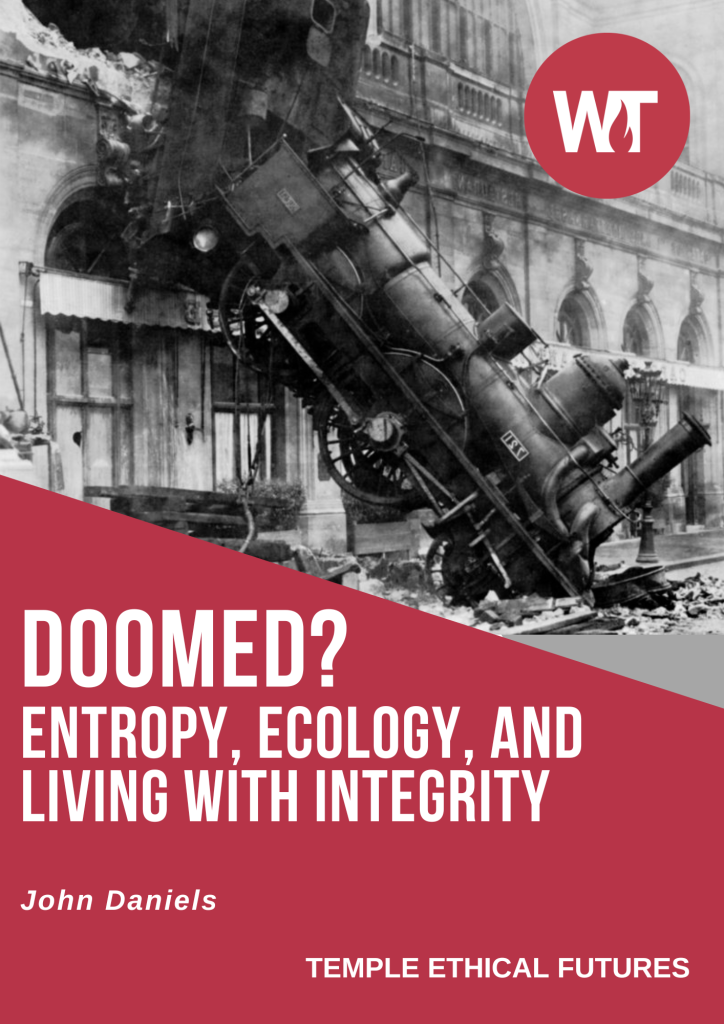
Doomed? Entropy, Ecology and Living with Integrity (2023)
John Daniels
During the age of cheap, plentiful fossil fuels these have underpinned human societies’ tendency to deplete resources and produce accumulating wastes at ever-increasing rates. As a result the human species has overshot the long-term carrying capacity of the planet. However the study of ecological systems shows that simplification need not mean terminal disaster.
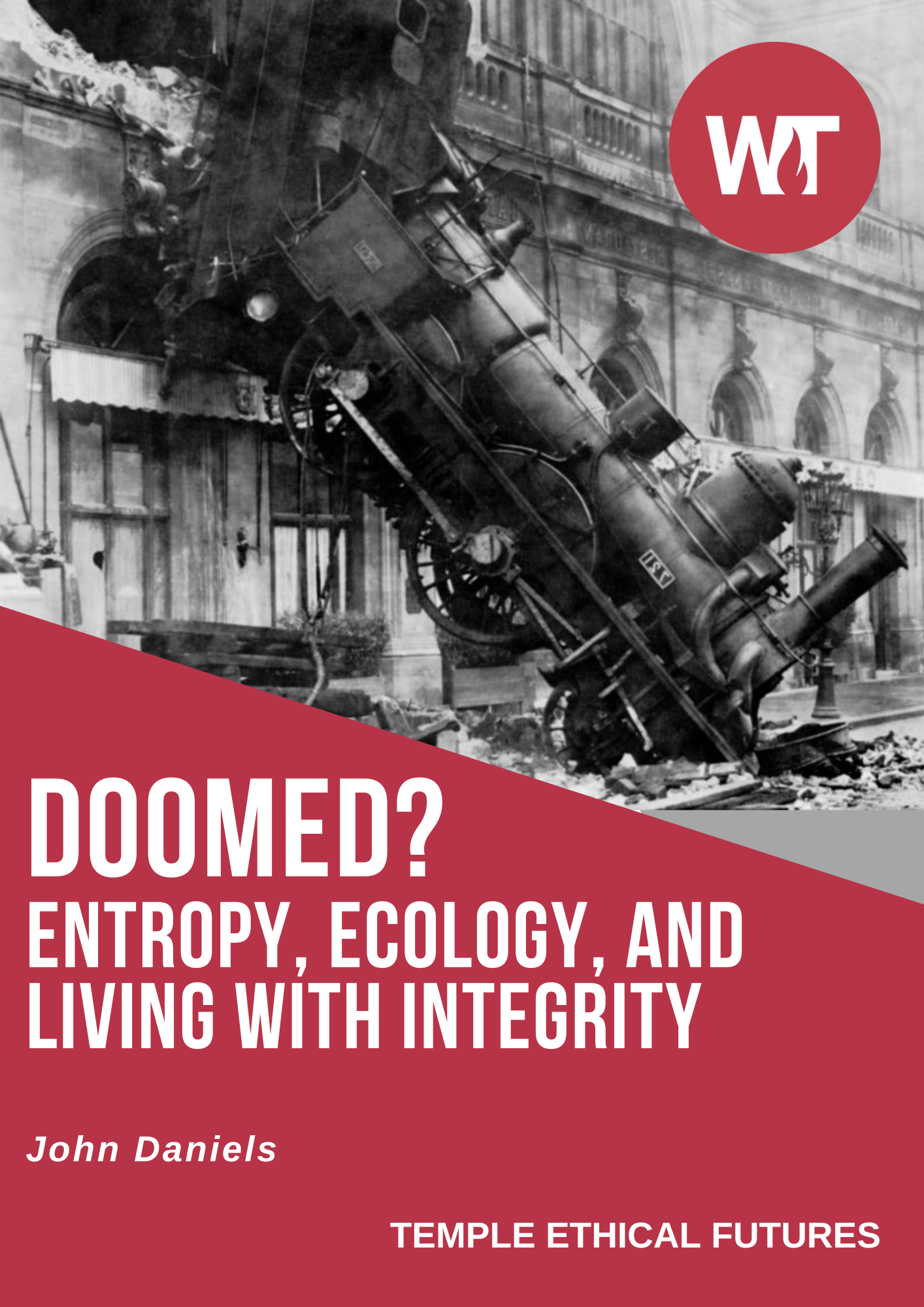
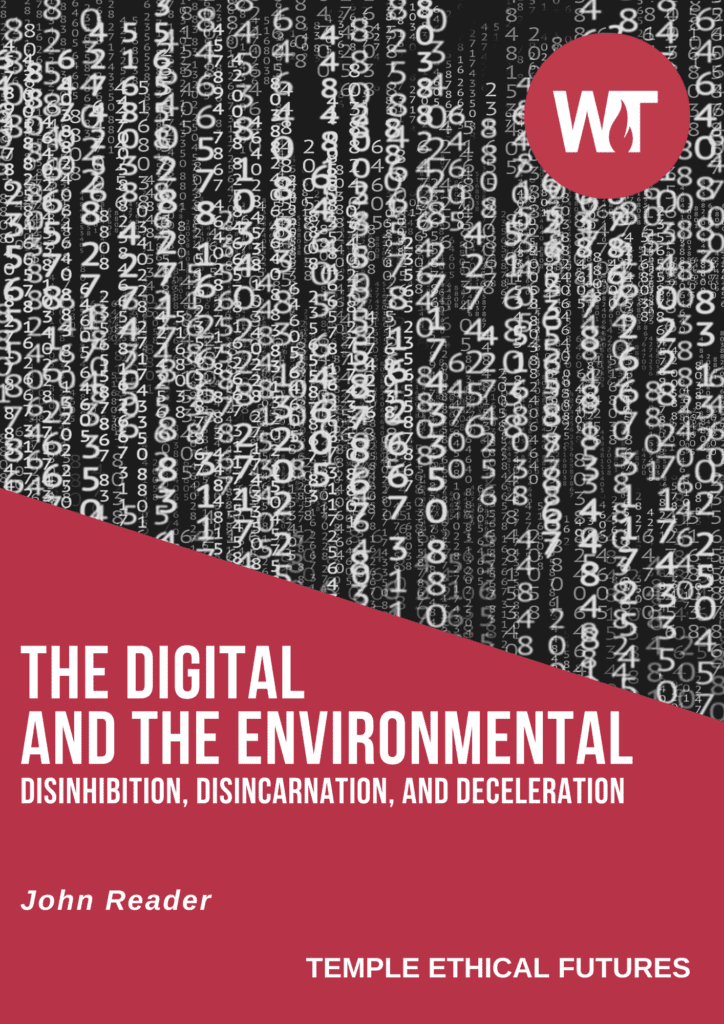
The Digital and the Environmental: Disinhibition, Disincarnation, and Deceleration (2022)
John Reader
John Reader explores the ways in which concern for the environment is mediated by digital technology, focusing on three key terms: disinhibition; disincarnation; and deceleration. As humans both shape and are shaped by the natural, we share a responsibility to discern the ways in which the dynamic assemblages of nature and digital technology can be use in a way that is life-enhancing and beneficial.
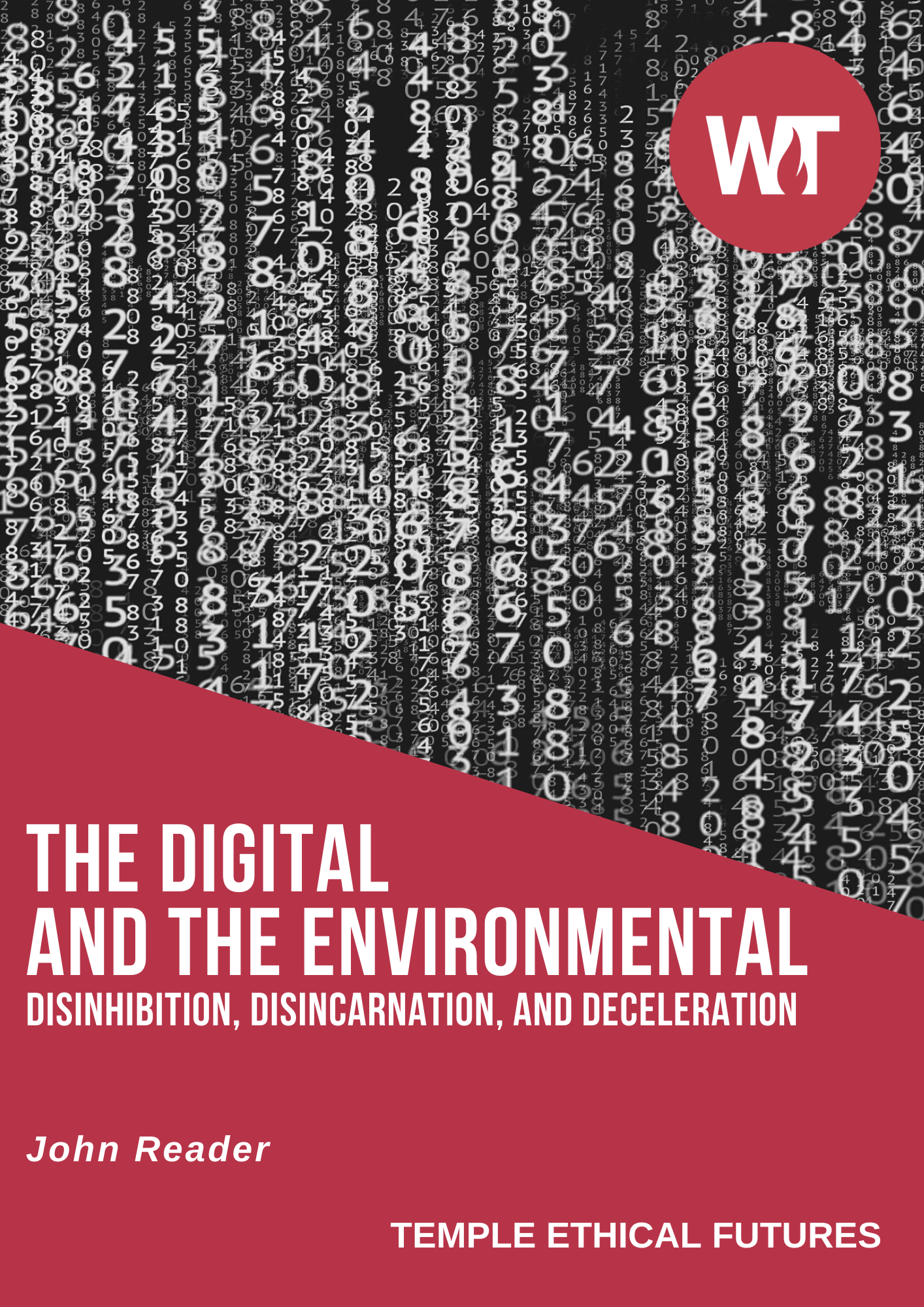
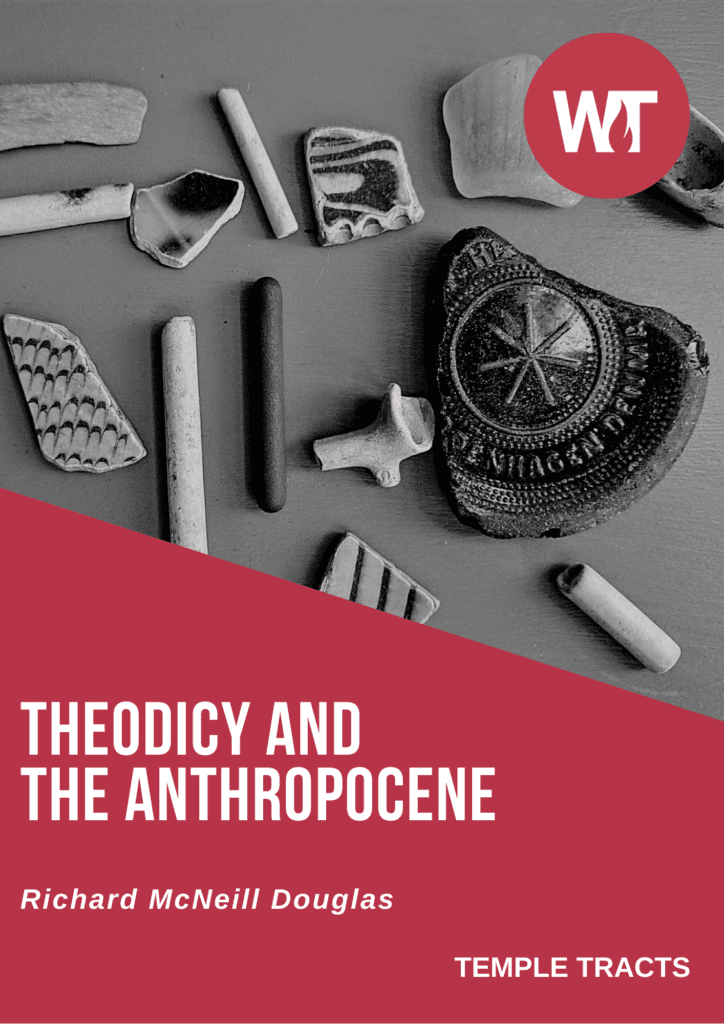
Theodicy and the Anthropocene (2021)
Richard Douglas
Secular modernity tends to assume that thing will get better, says Richard Douglas; it relies on a theodicy of progress. But Douglas argues that our current ecological predicament requires us to radically re-think this understanding of reality. Ranging from Charles Taylor and Hans Blumenberg to William Temple and Hugh Montefiore, this is a probing analysis of some of the serious problems posed by the Anthropocene.
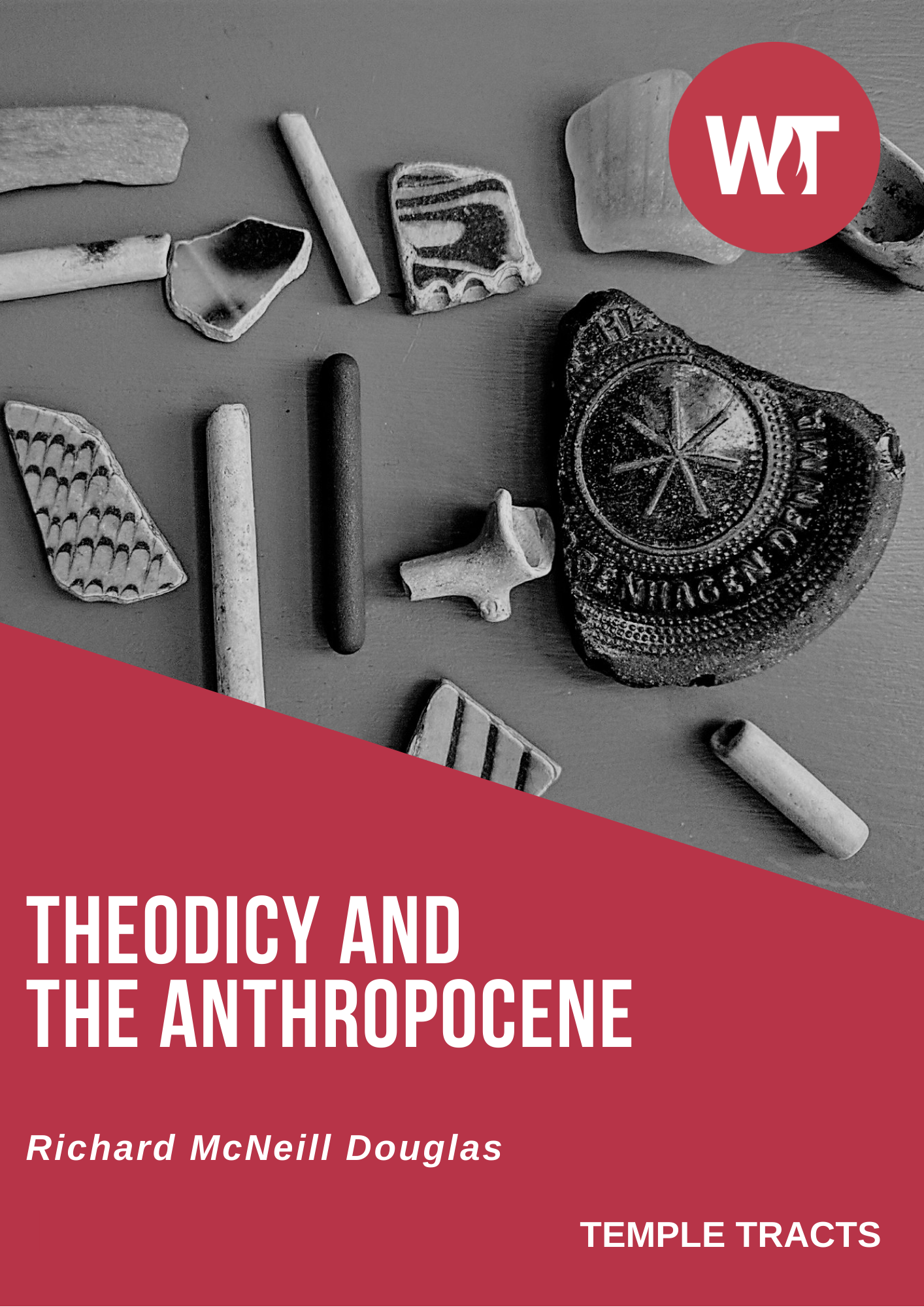
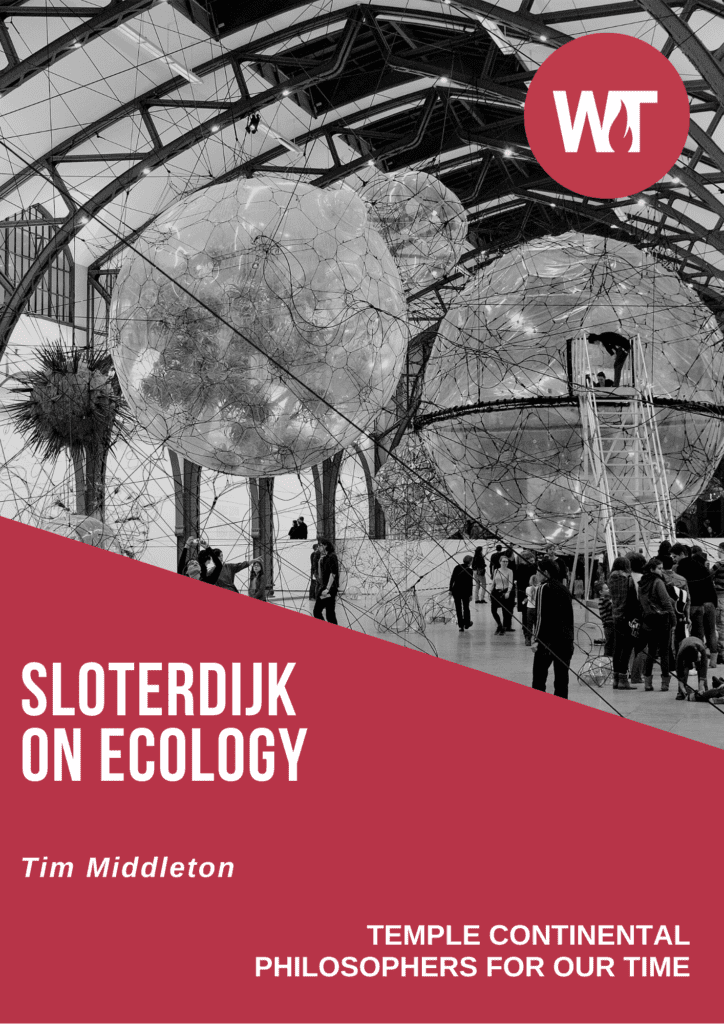
Sloterdijk on Ecology (2020)
Tim Middleton
In this instalment of our new series Temple Continental: Philosophers for our Time Tim Middleton introduces the “spherical philosophy” of the provocative thinker Peter Sloterdijk. From bubbles and eggs to globes and foam, much of life can be imagined as the inhabiting of spheres. Middleton then turns to what theology might learn from this philosophy in an era of ecological breakdown. Considering our current crisis, can we really contemplate a literal or metaphorical escape capsule? As our planet comes back to bite us, how might we seek protection from and simultaneously learn to live within our morally ambiguous earth? And can theology help us to inhabit our local and global spheres concurrently?
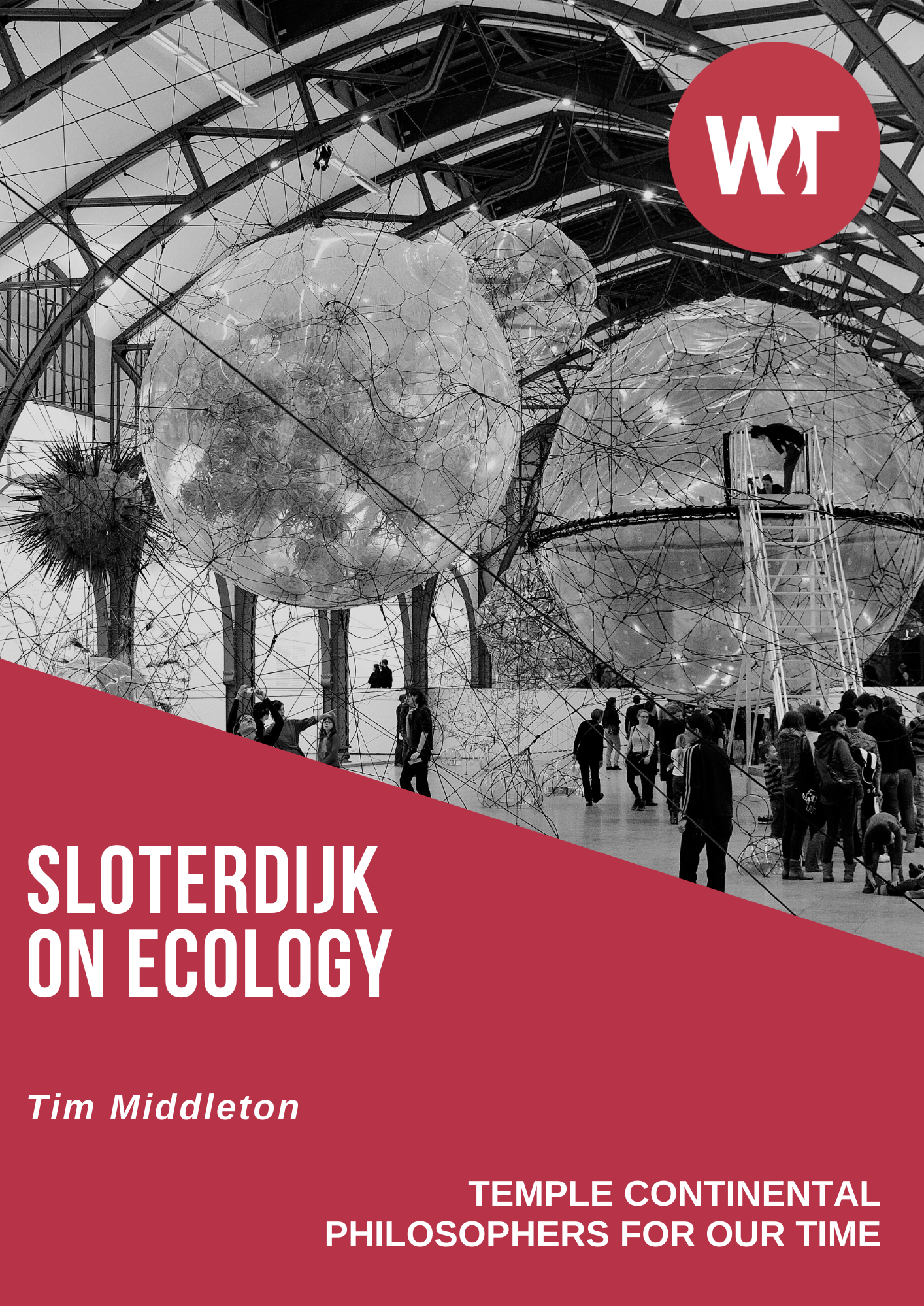
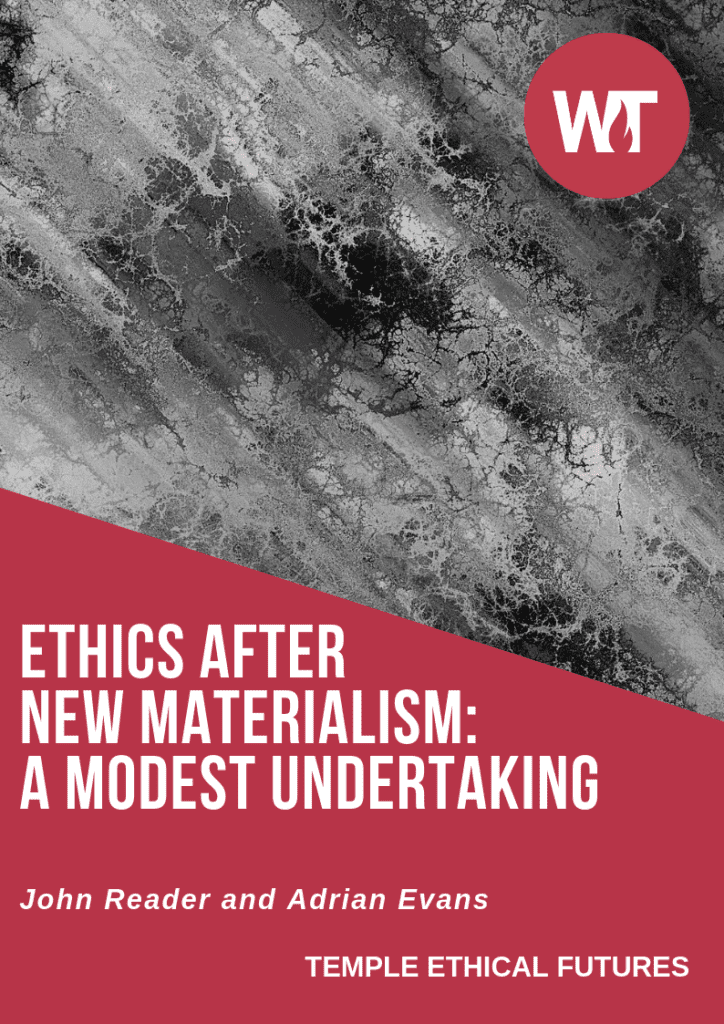
Ethics after New Materialism: A Modest Undertaking (2019)
John Reader & Adrian Evans
In the second of our Temple Ethical Futures series, John Reader and Adrian Evans draw on the philosophical resources of the contemporary New Materialisms in order to propose a new, modest form of ethics. Including thinkers such as Gilles Deleuze and Bruno Latour, and focussing particularly on ethical praxis in an age of information, Reader and Evans make the case for greater humility in both science and religion. This tract forms part of the ongoing work of the Ethical Futures group, which is hosted by the William Temple Foundation.
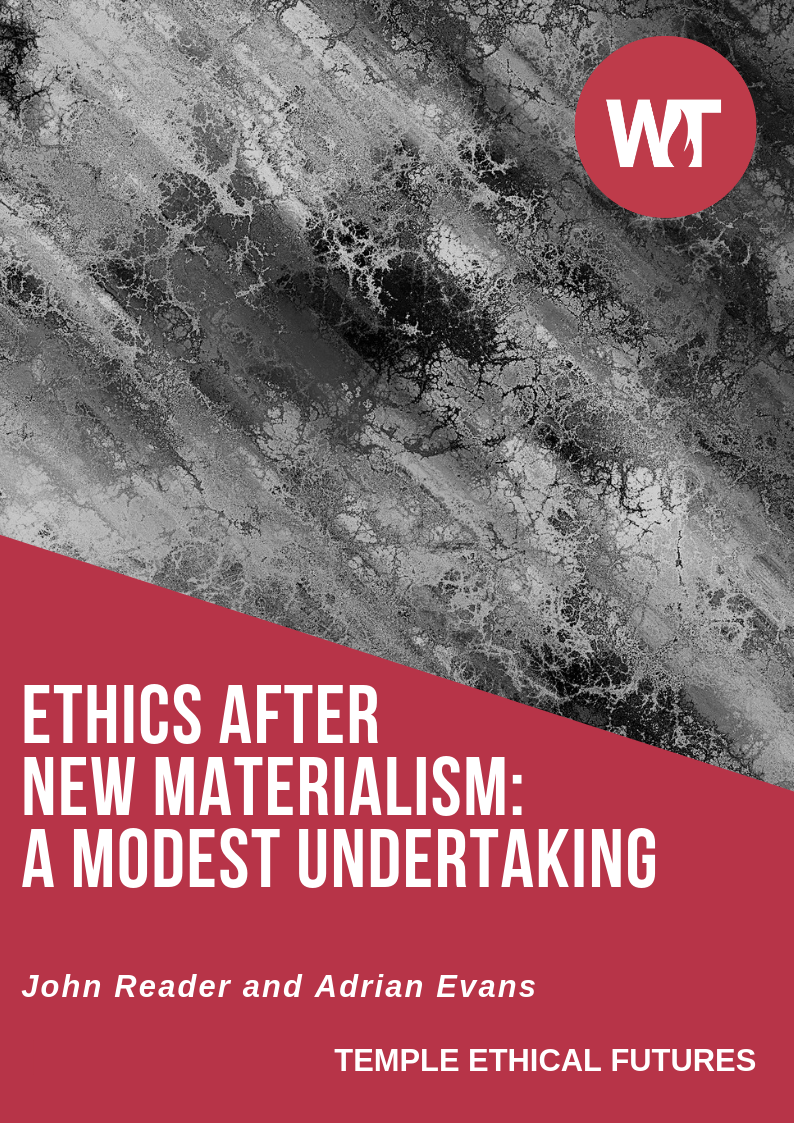
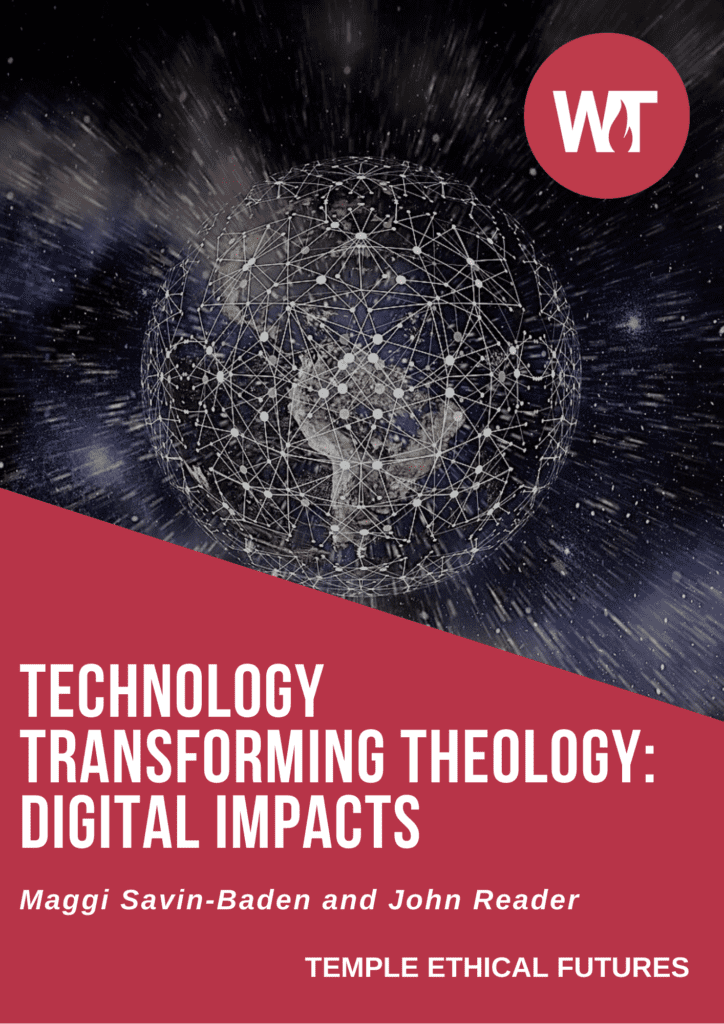
Technology Transforming Theology: Digital Impacts (2018)
Maggi Savin-Baden & John Reader
In the first of a new series of Tracts, Temple Ethical Futures, Maggi Savin-Baden and John Reader offer both practical examples of ways in which digital technology is impacting upon church activities and then reflect upon the philosophical and theological resources that could assist in developing appropriate concepts. This is the first Tract to emerge from a workshop held at Trinity College, Oxford in February 2018 entitled “Theological Futures: Ecological and Digital” at the heart of which is the issue of how humans are both shaping and being shaped by the new challenges we face and for which we are ourselves largely responsible. It is hoped that the publications in this series will address this question at both a practical and theoretical level.
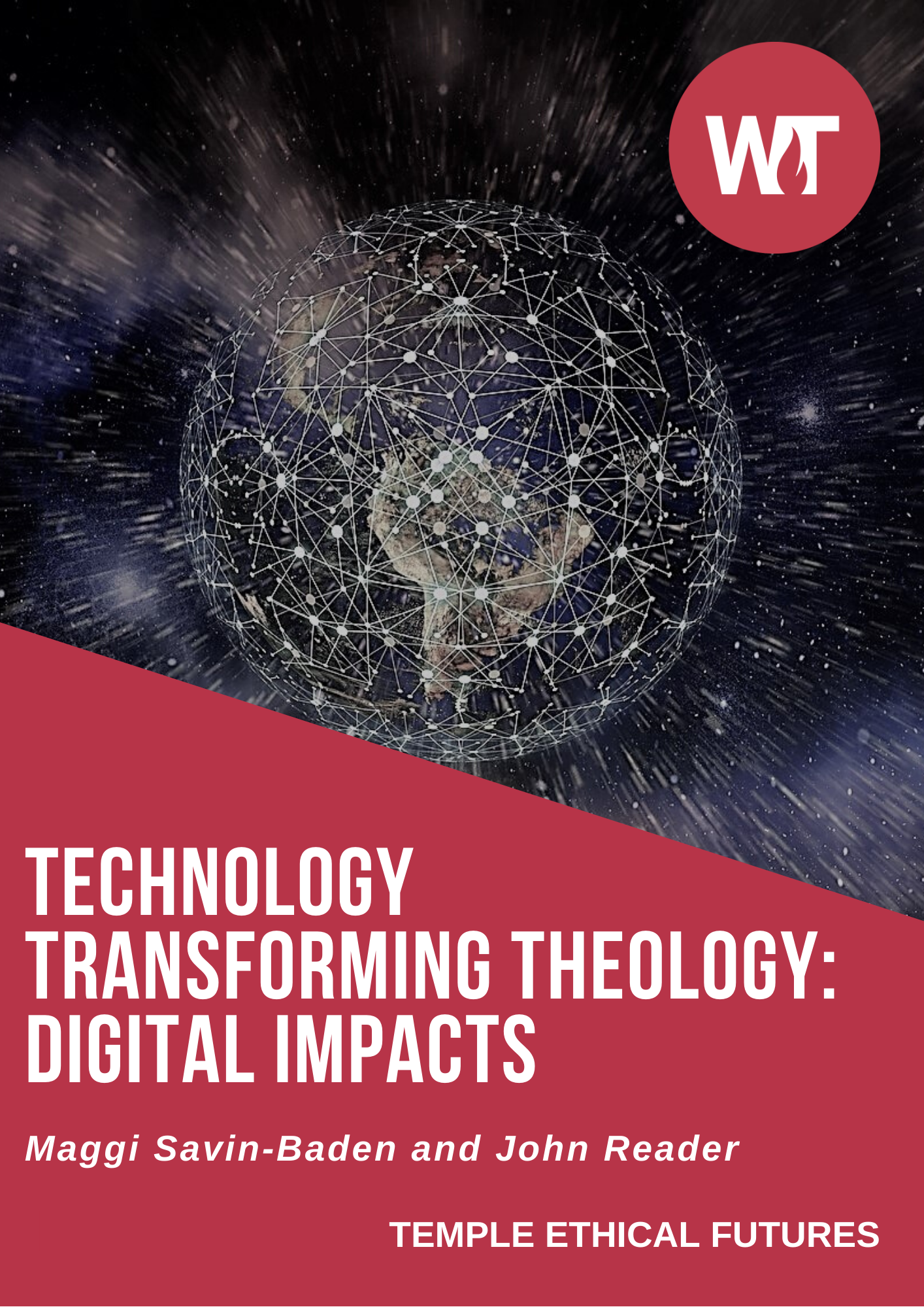
.